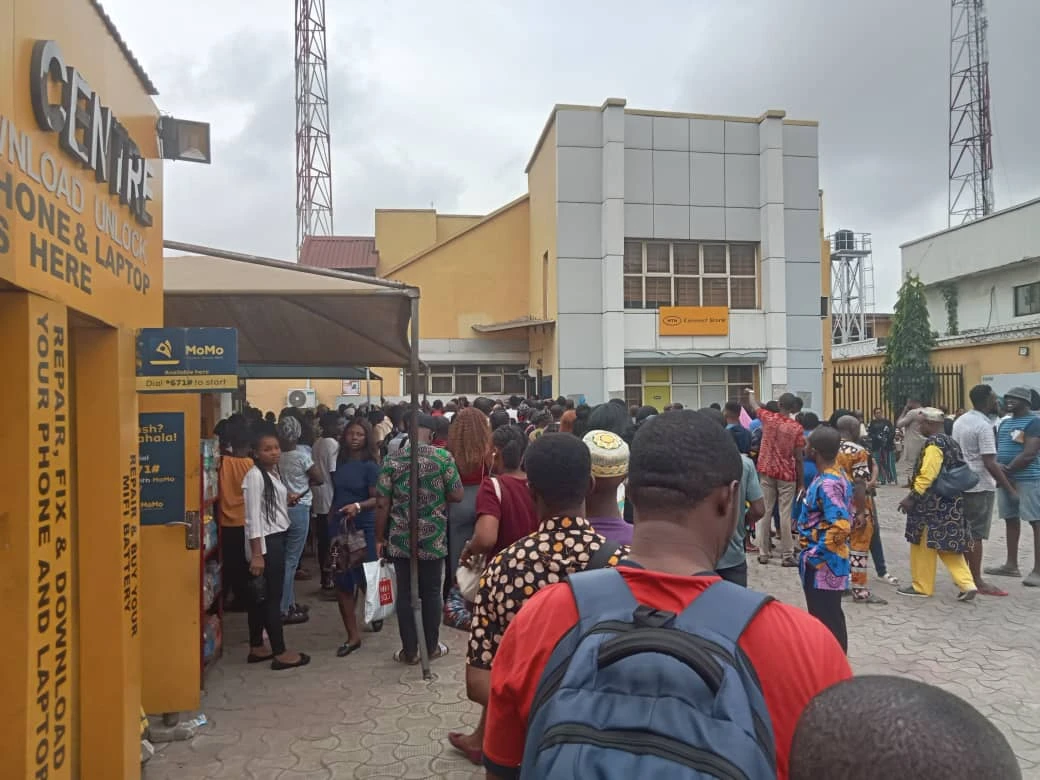Explore the recent SIM barring incident in Nigeria, its impact on communication, and official responses from ALTON and NCC amidst concerns over planned protests.

The recent incident of SIM barring by major telecommunication operators in Nigeria has sparked widespread public concern and debate, particularly due to its coincidental timing with planned national protests. On the weekend before the scheduled protests, millions of subscribers found their phone lines barred, leading to accusations that the government might be attempting to stifle the protests by limiting communication.
However, the Association of Licensed Telecommunication Operators of Nigeria (ALTON) has clarified that this action is not connected to the protests but is part of an ongoing effort to harmonize the SIM registration database with the National Identity Database.
The SIM barring exercise is rooted in the National Identity Number (NIN) and Subscriber Identity Module (SIM) linkage initiative. This policy, introduced by the Nigerian Communications Commission (NCC), aims to enhance national security and ensure the accuracy of the national SIM ownership database. The initiative began in December 2020, requiring all mobile phone users to link their SIMs with their NINs to validate their identity and prevent fraudulent activities.
Background to NIN-SIM Linkage Program
Since its inception, the NIN-SIM linkage program has seen several deadlines. Initially, subscribers were given a few months to complete the process, but the deadline has been extended multiple times due to logistical challenges and the sheer volume of users needing to comply. The most recent deadline was set for July 31, 2024, by which all unlinked SIMs were to be barred from the network.
Despite these extensions, many subscribers have struggled to complete the linkage, resulting in the barring of lines over the past weekend. This has led to significant disruption and frustration among affected users, many of whom claim to have already linked their NINs with their SIMs.
Public Reactions to the SIM Barring
The public reaction to the SIM barring has been one of considerable confusion and frustration. Many affected subscribers expressed shock and disbelief at the sudden disconnection of their phone lines, especially since they believed their NINs were already linked to their SIMs. The timing of the barring, just days before a major protest, led some to speculate that the government might be using the situation to suppress dissent.
Personal stories from affected individuals highlight the severe impact of the barring. For some, it has meant being cut off from vital communication channels, affecting both personal and professional interactions. Many have reported difficulties in accessing services and staying informed, further intensifying their frustration. The emotional and practical toll on these individuals underscores the broader impact of such administrative actions.
Official Statements from ALTON and NCC
In response to the public uproar over the SIM barring incident, the Association of Licensed Telecommunication Operators of Nigeria (ALTON) has firmly stated that there is no connection between the barring of SIMs and the planned national protests. According to ALTON, the SIM barring is part of a long-standing harmonization exercise aimed at aligning the National Identification Number (NIN) database with the SIM registration database. They stress that this initiative has been underway for several months and is intended to enhance the accuracy of the national SIM registry.
In light of the confusion caused by the recent SIM barring, the Nigerian Communications Commission (NCC) has intervened by directing all telecom operators to immediately reactivate the blocked lines. NCC’s spokesperson, Reuben Muoka, emphasized that the reactivation is intended to give consumers additional time to resolve discrepancies between their NIN and SIM records. The Commission acknowledged the difficulties faced by users and reiterated that the primary goal of the NIN-SIM linkage is to bolster national security and maintain a reliable SIM ownership database, not to hinder public protest.
Legal, Ethical, and National Security Considerations
Legal Considerations: The NIN-SIM linkage policy is grounded in the Nigerian government's efforts to prevent fraud and enhance security. Legally, the policy aims to ensure that all SIMs are registered to identifiable individuals, a measure that supports law enforcement and national security objectives. However, the sudden barring of lines raises questions about the adequacy of the legal provisions for ensuring fair and timely implementation of such policies.
Ethical Considerations: Ethically, the timing and execution of the SIM barring raise concerns about transparency and the potential infringement on citizens' rights. The coincidental timing of the planned protests has fueled perceptions of deliberate suppression. Ensuring that such measures are implemented with adequate notice and support is crucial to maintaining public trust and upholding democratic rights.
National Security Considerations: From a national security perspective, the NIN-SIM linkage is intended to improve the integrity of the SIM registry and enhance the government's ability to track and manage communication. While the policy aims to bolster security, it must be balanced with considerations of public convenience and the potential for disruption. Effective communication and timely problem resolution are essential to achieving the intended security benefits without causing undue hardship to citizens.
Overall, the responses from ALTON and NCC, combined with the public’s reactions, highlight the need to carefully manage such policies to ensure they meet their objectives while minimizing negative impacts on individuals.

